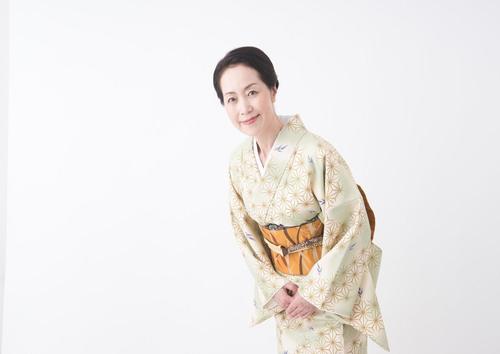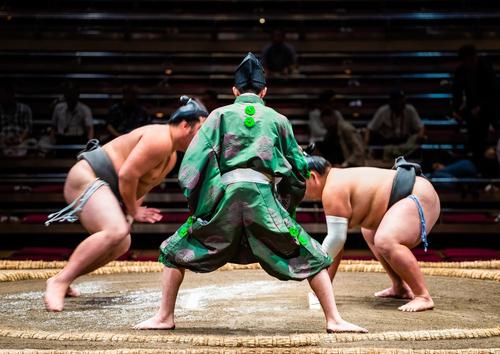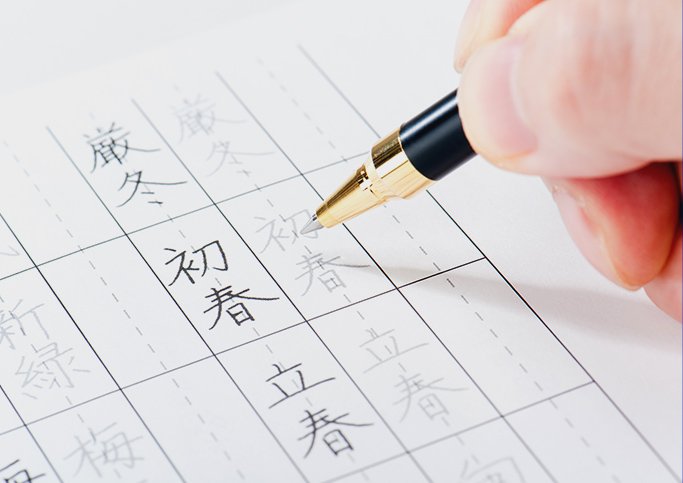
apologize
gomen ne / sumimasen / shitsurei itashimashita… How to express being sorry in Japanese
6/25/2021
What kind of paraphrases are there for the Japanese expression for being sorry, “ごめんなさい” (gomen'nasai)? In Japanese, it is necessary to use different expressions when you are sorry in daily life and in business. Let's learn to use Japanese that is appropriate for the person you are sorry to and the situation you are in.
1. ごめんね(gomen ne)
“ごめんね” (gomen ne) is a less formal version of “ごめんなさい” (gomen'nasai). It is used for people who are very close like family and friends. Also, “ね” (ne) of “ごめんね” (gomen ne) has a childish and light impression, so it is rarely used when children apologize to adults.
Example
昨日は意地悪してごめんね。
Kinō wa ijiwaru shite gomen ne.
Sorry for being mean yesterday.
Example
待ち合わせに遅れてごめんね。
Machiawase ni okurete gomen ne.
I'm sorry I was late for the meeting.
Example
メールの返信が遅くてごめんね。
Mēru no henshin ga osokute gomen ne.
Sorry for the late reply to the email.
2. すみません(sumimasen)
“すみません” (sumimasen) is an expression to convey “regret” for a small mistake or failure. It is mainly used for close friends and family. It can also be used in business situations, but since it has a somewhat informal feel, it is often used for peers, juniors, and close superiors in the same company. If you use it when you make a big mistake or cause a lot of trouble to customers, you may be mistaken as not reflecting on it. You need to be careful about who you use it to and when you use it.
Example
お待たせしてすみません。
O matase shite sumimasen.
I'm sorry to have kept you waiting.
Example
帰りが遅くなってすみません。
Kaeri ga osoku natte sumimasen.
Sorry for the late return.
Example
夜遅くに電話してすみません。
Yoru osoku ni denwa shite sumimasen.
I'm sorry to call you late at night.
3. すまない(sumanai)
“すまない” (sumanai) is an informal expression for “すみません” (sumimasen). It is used for family, friends, and close associates. “すまない” (sumanai) is a Japanese word that is mostly used by men. Since it is a bit old-fashioned, you will probably hear it more in period dramas and movies than in daily conversation.
Example
あなたが気に入っていた食器を割ってしまった。すまない。
Anata ga kiniitte ita shokki wo watte shimatta. Sumanai.
I broke the tableware you liked. I'm sorry.
Example
すまない。あなたが大切にしていた指輪をなくしてしまった。
Sumanai. Anata ga taisetsu ni shite ita yubiwa wo nakushite shimatta.
I'm sorry. I lost the ring you cherished.
[日本のことが気になる?一緒に日本語を学びませんか?]
4. 失礼いたしました(shitsurei itashimashita)
The phrase “失礼いたしました” (shitsurei itashimashita) is a polite form of “ごめんなさい” (gomen'nasai). In English, it is often translated as “I apologize” instead of “I'm sorry.” It is characterized by the meaning of “please forgive me” for rude language or behavior. It is mainly used in business situations for superiors and bosses in the same company. However, if you are making a mistake to an important customer or client, it is more sincere to use “申し訳ございません” (mōshiwakegozaimasen) or “お詫び申し上げます” (owabi mōshiagemasu).
Example
私の勘違いでした。失礼いたしました。
Watashi no kanchigai deshita. Shitsurei itashimashita.
My misunderstanding. I apologize for that.
Example
音声が途切れてしまいました。失礼いたしました。
Onsei ga togirete shimaimashita. Shitsurei itashimashita.
The audio has been cut off. My apologies.
Example
ご挨拶が遅れてしまいました。大変失礼いたしました。
Go aisatsu ga okurete shimaimashita. Taihen shitsurei itashimashita.
I apologize for the delay in greeting you. I am terribly sorry.
“失礼いたしました” (shitsurei itashimashita) is also often used as “大変失礼いたしました” (taihen shitsurei itashimashita). By using “大変” (taihen), we can emphasize the politeness and the reflection from the heart.
5. 申し訳ございません(mōshiwakegozaimasen)
“申し訳ございません” (mōshiwakegozaimasen) is an honorific expression for “ごめんなさい” (gomen'nasai). It can be used to convey a sincere apology. In the business scene, it is used for bosses, superiors, people outside the company, and customers. It is a formal expression and is rarely used for close friends and family.
Example
ご迷惑をおかけし申し訳ございません。
Gomeiwaku wo okake shi mōshiwakegozaimasen.
We apologize for the inconvenience.
“申し訳ございません” (mōshiwakegozaimasen) is also often used as “大変申し訳ございません” (taihen mōshiwakegozaimasen). Together with “大変” (taihen), it can convey politeness and deep remorse.
Example
締め切りに間に合わせることができず、大変申し訳ございません。
Shimekiri ni maniawaseru koto ga dekizu, taihen mōshiwakegozaimasen.
We are very sorry that we could not meet the deadline.
6. お詫び申し上げます(owabi mōshiagemasu)
The phrase “お詫び申し上げます” (owabi mōshiagemasu) is a very polite paraphrase of “ごめんなさい” (gomen'nasai). You can express your apology while showing respect to the other person. It is an expression used for bosses and seniors within the company, and for business partners and customers outside the company. It is often used in business situations to apologize for a serious mistake or for causing great damage. It is also often used with the words “深く(fukaku),” “心より” (kokoroyori), and “謹んで” (tsutsushinde). It is a polite way to let the other person know that you are sincerely sorry.
Example
私の確認不足でご迷惑おかけしましたことをお詫び申し上げます。
Watashi no kakunin busoku de gomeiwaku okake shimashita koto wo owabi mōshiagemasu.
We apologize for any inconvenience caused by my lack of confirmation.
Example
不快な思いをさせてしまったことを心よりお詫び申し上げます。
Fukaina omoi wo sasete shimatta koto wo kokoroyori owabi mōshiagemasu.
We sincerely apologize for making you feel uncomfortable.
Example
この度の不祥事につきまして深くお詫び申し上げます。
Konotabi no fushōji ni tsukimashite fukaku owabi mōshiagemasu.
We deeply apologize for this scandal.
Example
製品トラブルのためご迷惑をおかけしましたことを謹んでお詫び申し上げます。
Seihin toraburu no tame gomeiwaku wo okake shimashita koto wo tsutsushinde owabi mōshiagemasu.
We sincerely apologize for any inconvenience caused by the product trouble.
There are a lot of paraphrases for “ごめんなさい” (gomen'nasai) in Japanese. Learn many paraphrases and use them in many situations.
In fact, there are other ways to use “すみません” (sumimasen) than just apologizing. Do you know it? If you are interested in the Japanese language, why don't you sign up for a free membership to Human Academy Japanese Language School Plus. You can experience practical Japanese lessons by experienced teachers for free.
CATEGORIES
FEATURED TAGS
RECOMMENDATION
-
 報BUSINESS TERMS
報BUSINESS TERMSWhat is ”Ho-Ren-So”, one of the basic manners when working in Japan?
10/30/2020
-
 伝WORDS & GRAMMAR
伝WORDS & GRAMMARWhat is easy Japanese?
10/30/2020
-
 礼MANNERS
礼MANNERSJapanese greeting customs and origins. What are the greetings from other countries?
10/30/2020
-
 戯COMIC & GAME
戯COMIC & GAMEThe roots of animation and manga? Introducing bird and beast caricatures
10/30/2020
-
 戦SPORTS
戦SPORTSThe history of sumo goes back to the mythical world! ?? Transition from myth to modern times
10/30/2020
LET’S PLAY
KARUTA!
Do you know the meaning of this...
NEXT...
FURTHER EXPLORATION
INTERESTED
IN JAPAN?
WHY DON’T YOU
LEARN JAPANESE WITH US?
START LEARNING
JAPANESE
WITH HUMAN ACADEMY!
ONE OF
THE MOST POPULAR
JAPANESE
LANGUAGE SCHOOLS
JAPANESE
LANGUAGE SCHOOL
OFFERING EXCELLENT
DETAILED LESSONS

ONLINE SCHOOL
- Learn with your classmates from all over the world
- Variety of Courses for All Needs
- FREE Trial Lesson available

TOKYO, OSAKA
- Offer the Best Curriculum for You
- Make New Japanese Learning Friends
- Many Opportunities to Practice Japanese
MAKE FURTHER
STEPS
WITH HUMAN ACADEMY!
ONE OF
THE MOST POPULAR
JAPANESE
LANGUAGE SCHOOLS
JAPANESE
LANGUAGE SCHOOL
PRODUCING MANY
JLPT N1 CERTIFIED
STUDENTS!

ONLINE SCHOOL
- Learn with your classmates from all over the world
- Variety of Courses for All Needs
- FREE Trial Lesson available

TOKYO, OSAKA
- Support Your Higher Goal of Japanese Learning
- Perfect Environment for Japanese Learners
- Learn with Your New Japanese Study Mates
























